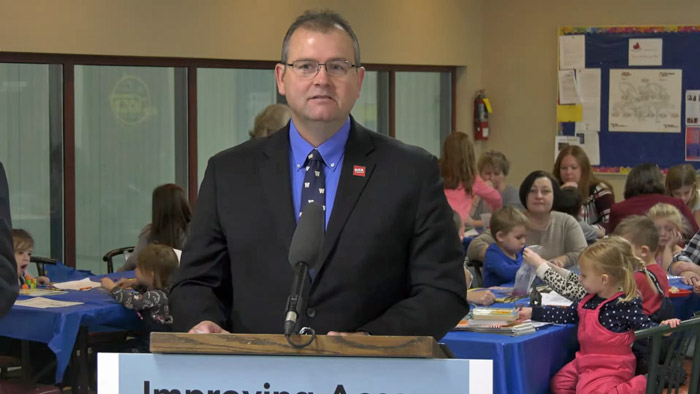The Manitoba government has released the final report of the Poverty and Education Task Force which highlights successful initiatives that are already in place, while acknowledging barriers and challenges faced by students who live in poverty.
“I’d like to thank the Poverty and Education Task Force for its hard work and dedication to further exploring the relationship between poverty and education,” said Education and Early Childhood Learning Minister Wayne Ewasko. “This report will be invaluable as the Manitoba government continues working to improve educational and well-being outcomes for students in Manitoba.”
The task force was launched in September 2021 in response to a recommendation in the final report of the Manitoba Commission on Kindergarten to Grade 12 Education. The task force’s mandate was to identify actions to remove barriers to participation and engagement in learning for students living in and with poverty.
The report outlines central themes captured during the task force’s comprehensive engagement process which included in-person, community-based consultations, virtual stakeholder panels and a student survey distributed to all high schools in the province. The minister extended sincere appreciation to the 2,000 students, school staff and community members who took the time to participate in the engagement sessions and student survey.
In addition to the commitment of an ongoing review of the report’s recommendations, the Manitoba government is committing immediately to the following actions:
- reviewing in-school meal programs and partnerships to improve access and explore needs-based distribution of funding and resources, in collaboration with educational partners;
- developing a clear anti-racism policy directive that sets expectations and guidance to ensure anti-racism measures are actively in place in all Manitoba schools to disrupt the compounded effects of poverty and racism on student learning and success; and
- expanding the Community Schools Program by investing $595,000 to fund five additional schools within communities experiencing high poverty, bringing these services to a total of 41 schools across the province.
The minister also noted two current initiatives that are successfully breaking down barriers to participation, as part of the Manitoba government’s ongoing work to promote student engagement and well-being through intersectoral partnerships.
The Manitoba government has increased this year’s funding to the Child Nutrition Council of Manitoba, for a total of $2.5 million, to support school-based meal and snack programs.
The Manitoba government has also partnered with Shoppers Drug Mart on an innovative program that provides free menstrual products in schools. To date, 1.6 million menstrual products have been distributed as part of this initiative, added the minister.
“All students deserve the right to go to school without barriers or stigma,” said Ewasko. “Providing free menstrual products to students who need them helps to build a fair, equitable and inclusive education system where all students have the opportunity to succeed.”
Other recent Manitoba government initiatives that support the task force recommendations include:
- providing $1.6 million toward the expansion of Elders and Knowledge Keepers for all school divisions across the province, which supports respectful and relational engagement with Elders and Knowledge Keepers to embed Indigenous world views across curricula, instruction, assessment and within mental health and well-being programming;
- investing $3.2 million in mental heath and well-being strategies proposed through the Teachers’ Idea Fund; and
- releasing a new policy directive and action plan to enhance student presence and engagement, supported by a $22-million commitment outlined in the 2023-24 schools funding announcement this month.
To read the final report, visit edu.gov.mb.ca.





